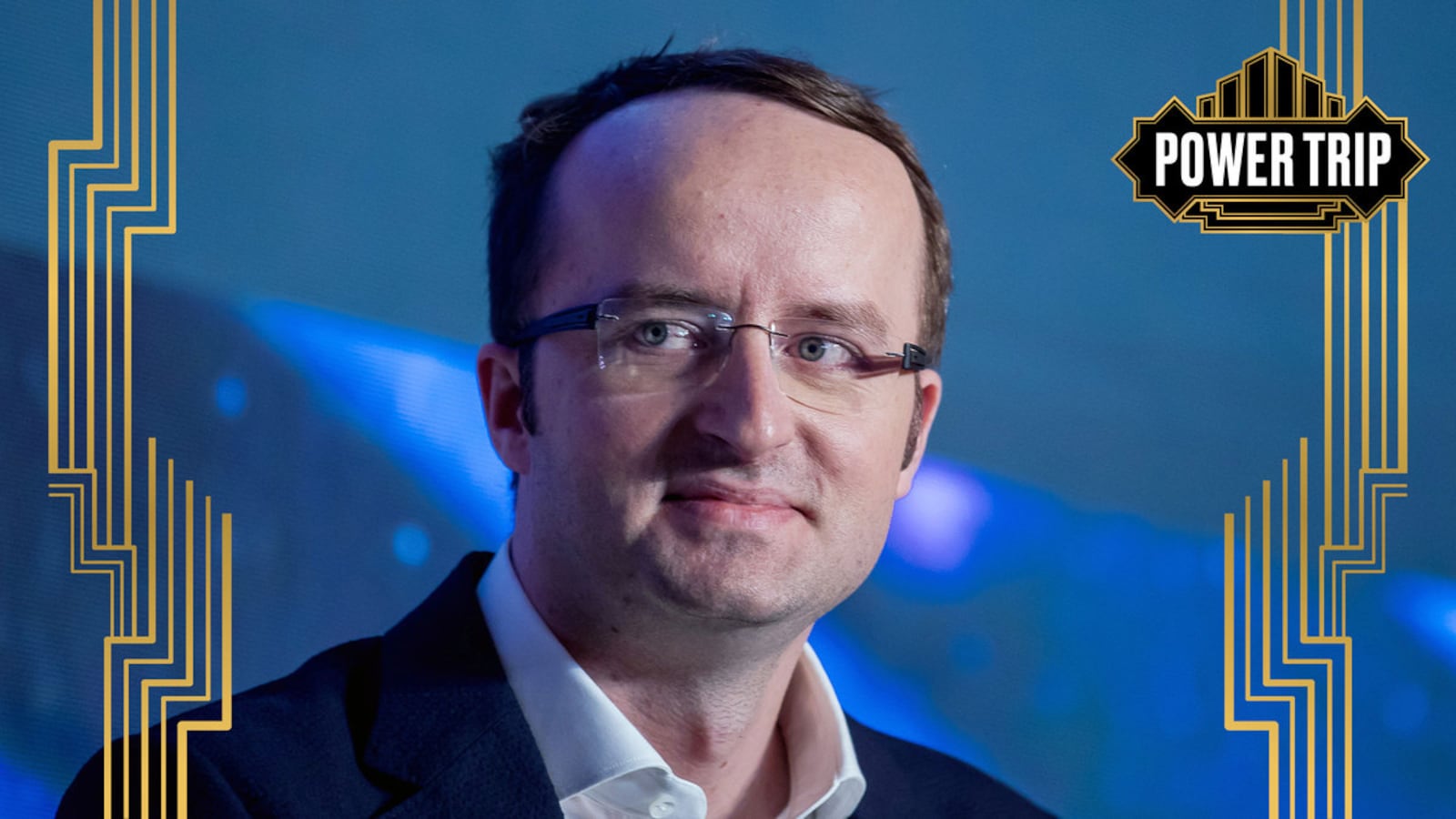The self-styled mavericks of the crypto world have claimed another prize, this time the Staples Center, where Kobe Bryant helped deliver five NBA championships to Los Angeles. And the man behind the deal, a little-known digital currency kingpin based in Hong Kong, has a rocky past.
Kris Marszalek, CEO and cofounder of Crypto.com—which reportedly paid over $700 million for the naming rights to the arena—left his last job amid accusations from customers and business partners that they had been ripped off.
The Australia-based company, a publicly traded discount website called Ensogo, offered online deals comparable to Groupon. It abruptly shuttered its operations in Southeast Asia in June 2016, just as Marsazlek stepped out the door to join Crypto.com.
According to a report by the Hong Kong newspaper The Standard published the day after he resigned, buyers and sellers on Ensogo’s platform were blindsided by the shutdown and left “with hundreds of thousands of dollars in losses.” A number of merchants reportedly told police they had been defrauded.
One business owner told The Standard that she was owed two months of payments from Beecrazy, a Ensogo subsidiary that Marszalek had founded. She claimed the platform had issued promotions to boost its revenue just before shutting down—deals that were then left worthless.
"It seems to us that they wanted to make huge business from us one last time,” she said.

The Thai press, meanwhile, reported that Ensogo executives would be “summoned” as part of an inquiry into whether it had been “involved with fraudulent activities.” It’s not clear what ultimately became of the investigation—or whether customers were eventually made whole.
The collapse juxtaposed earlier messaging from the company. Ensogo had announced in April 2016 that it was taking its marketplace app global after seeing strong “traction” in its operations. The company also said it had laid off more than half of its workforce during the previous several months to reduce overhead.
By August of that year, as the outrage persisted, Ensogo said that it was moving to formally liquidate most of the subsidiaries that operated flash deals and marketplaces in Southeast Asia.
Ensogo added in its 2016 annual report that its financial troubles “cast significant doubt on the company’s ability to continue as a going concern.”
In the end, Hong Kong police, as just one investigative body, said they received more than 300 complaints involving nearly $1 million in lost payments between June and August 2016, but determined no crime had been committed.
The Hong Kong Consumer Council told The Daily Beast it advised complainants to seek chargebacks from their banks if they had made purchases using a credit card.
After this story published, a spokesperson for Crypto.com sent a statement on Marszalek’s behalf that read, in part, “In mid 2016, the [board] decided to shut down Ensogo against Kris’s wishes and advice. Kris did not hold a board seat and held a low single digit percentage stake in the business at the time. He resigned in response to the proposed shutdown. The shutdown angered many customers and consumers—one of the reasons Kris was opposed to the decision. There was never a finding of wrongdoing under Kris’s leadership.”
In any event, as the dust settled, Marszalek was already at Crypto.com.
And business quickly boomed. The company says it now has more than 10 million customers and operates the world’s fastest-growing crypto app. It has a number of revenue streams, including a currency exchange, a digital wallet, and an NFT platform—combining virtually every crypto buzzword into one consolidated business.
His track record, however, remains important context for Crypto.com’s customers and partners, says Charles Elson, professor of corporate governance at the University of Delaware. “Anyone who blows themselves up is a risk. The risk is it happens again,” he said. “The question is, do you have the ability to avoid it? Was it really your fault the first time, or is it a character trait?”
At least for the moment, Marszalek’s investors are likely happy. In an interview with the Los Angeles Times on Tuesday night, Marszalek said the company’s revenue has exploded more than 2,000 percent over the past 12 months, but he wouldn’t offer details.
“In the next few years, people will look back at this moment as the moment when crypto crossed the chasm into the mainstream,” he said about the stadium deal, which takes effect on Christmas Day.
Crypto.com reached the 20-year agreement with AEG, the live events company that owns the arena. AEG, in turn, is owned by the billionaire Philip Anschutz.
“We dedicate this one to everyone who worked tirelessly over the years to bring crypto into the mainstream. You know who you are,” Marszalek tweeted on Wednesday, in a statement appended to a long quote by Theodore Roosevelt.
Marzalek told the L.A. Times that he has never been to a game at the Staples Center, but he plans to be there on Christmas.
“The next decade belongs to crypto,” he said, adding that he hopes to make Crypto.com a “top-20 brand in the next three or five years, alongside names like Nike or Apple.”
And even as digital currency markets fluctuate wildly—or perhaps because they are fluctuating wildly—the company continues to rake in cash. Online forums feature hundreds of complaints from Crypto.com users about intransparent and high fees, though that grievance is leveled at virtually every other trading platform, too.
During a gold rush, the saying goes, sell shovels.




